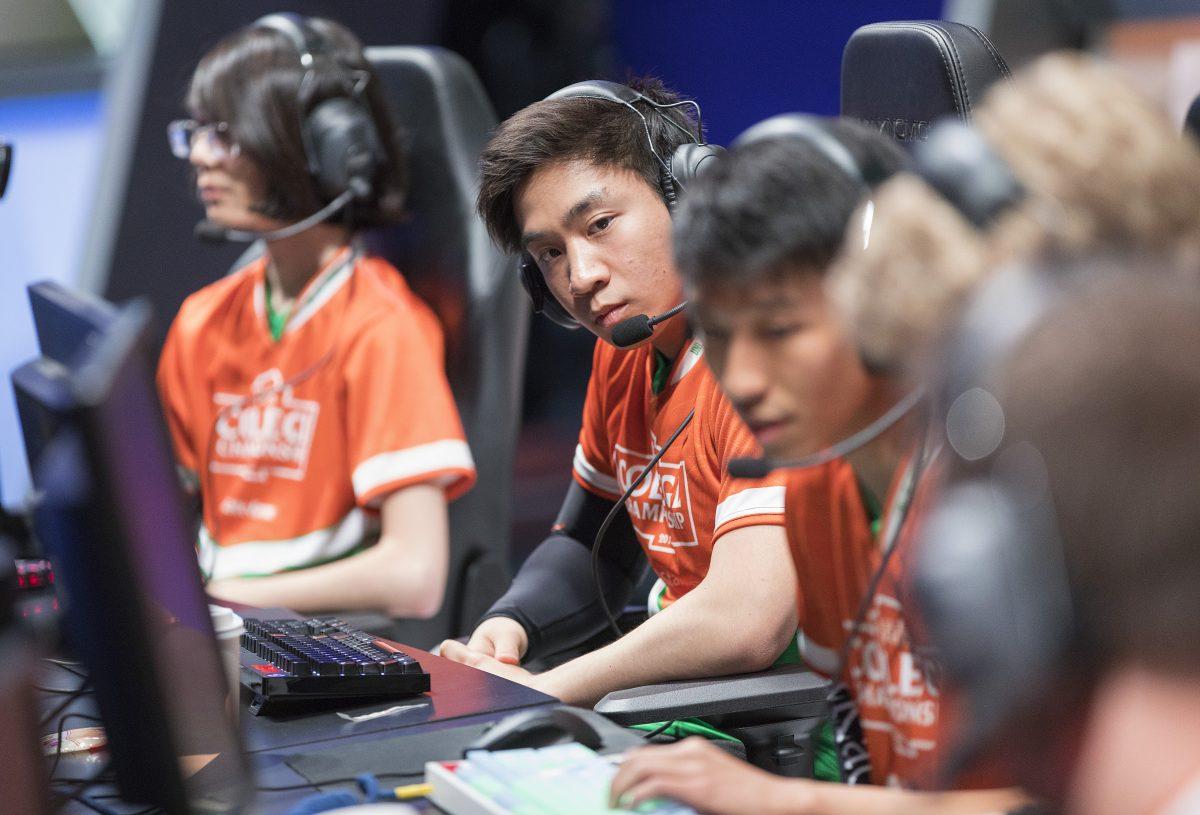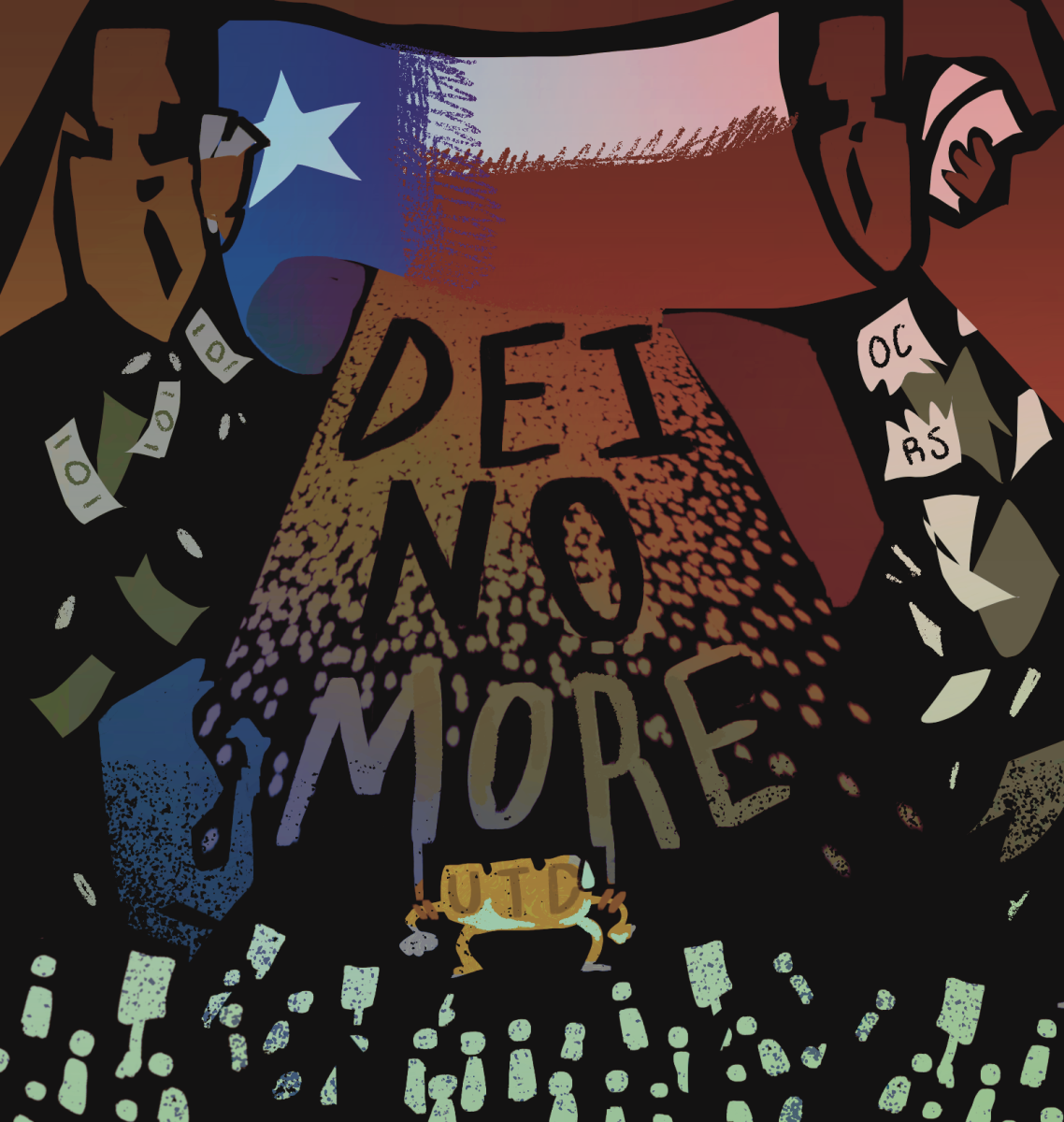UTD’s “League of Legends” team — now recognized by the athletics department as a varsity sport — qualified for and competed at the annual national championships held in Los Angeles last week.
“We went into the championship not expecting much,” said Karlin Oei, a finance junior who was one of the five members of the team. “We knew who we were playing against and we knew how challenging it would be.”
“League of Legends,” a multiplayer online arena game developed by Riot Games, combines steampunk and fantasy elements into a game where players have to destroy the opposing team’s “nexus,” a defensive base. Since its initial release in 2009, the game has garnered a large following, particularly on college campuses. William Nguyen, a mathematics senior who serves as the UTD team’s manager, started playing “League of Legends” five years ago. Each match is discrete — something which Nguyen said adds to the thrill of the game.
“There’s always new people you’re playing against,” he said. “There’s always different situations you have to adapt to. It’s always a new experience.”
Riot Games organizes teams at college campuses nationwide and provides a platform for intercollegiate competition. The season begins during the spring semester and involves college teams competing against each other in regional groups. UTD competed against over 60 teams within the South region and went on to win the regional playoffs, automatically qualifying the team to advance to the national championships in Los Angeles, held from June 7 to June 10 at the NA LCS Arena. This year’s national competition featured a total of eight collegiate teams from across the United States and Canada. The Comets faced off against Columbia College in the first quarter-final round, but ultimately lost.
“We unfortunately didn’t have much preparation going into it because a lot of our players were on vacation,” Oei said. “We tried our hardest to get back into form for the championship, but it didn’t pan out.”
Oei said in spite of the loss, his team remains optimistic. For Oei, the fact that the team had qualified for the national championship changed his family’s attitudes towards “League of Legends.”
“For the majority of us, our parents didn’t support what we were doing. They didn’t realize how big it was and how passionate we were about it,” he said. “We basically changed all of our parents’ minds. They went from telling us to go to sleep or study to, ‘Hey, you should play more. You can do something with this.’”
The team’s qualification for the national championships came after the recent announcement from the UTD athletics department that esports would be recognized as the university’s 14th varsity sport.
Michael Sherman, an alumnus who graduated in 2014 with a degree in computer science, organized the first League of Legends team at UTD during his freshman year in 2011. He said watching the team’s progression from an informal gathering of people to a university-recognized sport at a national competition felt surreal. Sherman now works for Riot Games as its college esports manager.
“It’s a weird dream come true,” he said. “In 2012, we tried having meetings with the school to get them to adopt esports into the (athletics) department. There was definitely a bunch of people who didn’t take us seriously at the time.”
The athletics department is in the process of hiring a coach for the League of Legends team under the provisions of the new varsity esports initiative. Oei said the inclusion will benefit the team at future competitions, providing more structured practice time and guidance.
“When we were out on the stage, two of our players were really feeling the pressure. We didn’t have (a coach) to calm us down,” he said. “I think that’s something that the coach is really going to have to be able to do.”
The team will continue to practice during the summer and fall semesters in preparation for next year’s competition season. Oei said despite their loss, he and his team members are ready to compete again.
“After the game, we watched the other quarterfinals in the audience,” he said. “It gave us a thirst for next year — a renewed drive to perform a lot better and make a statement.”











